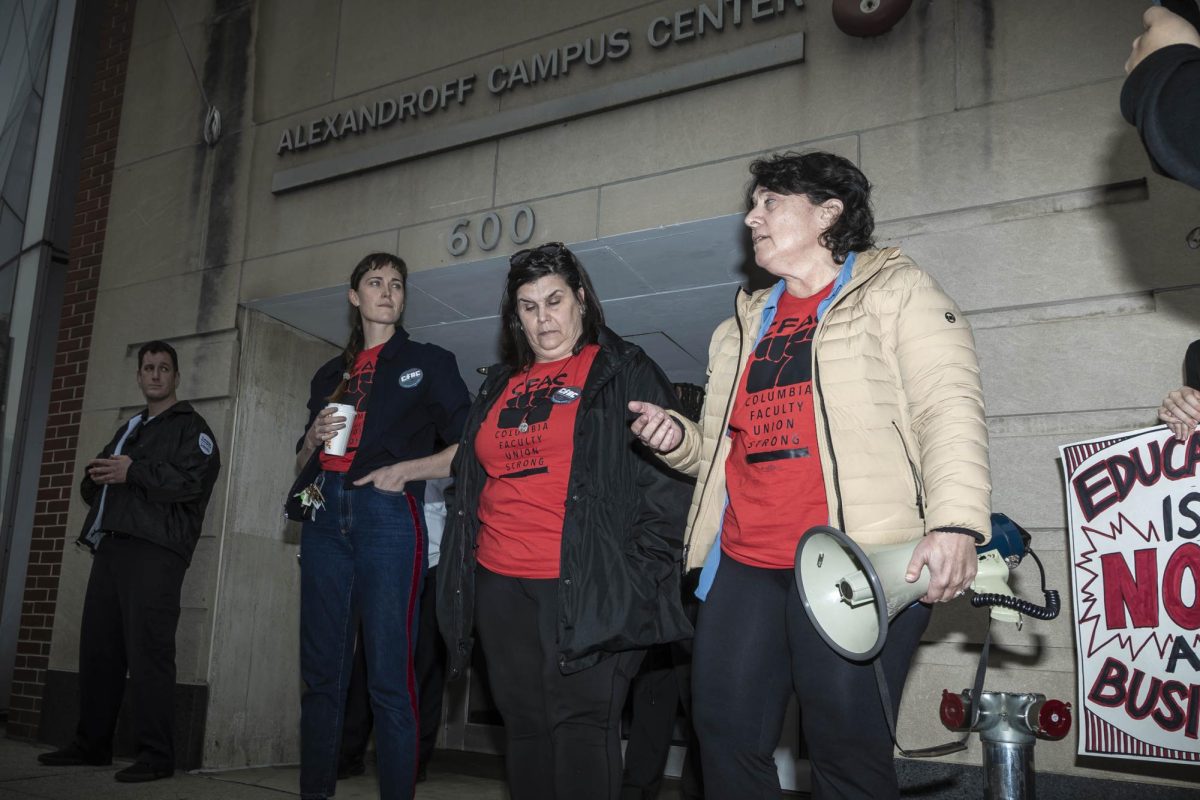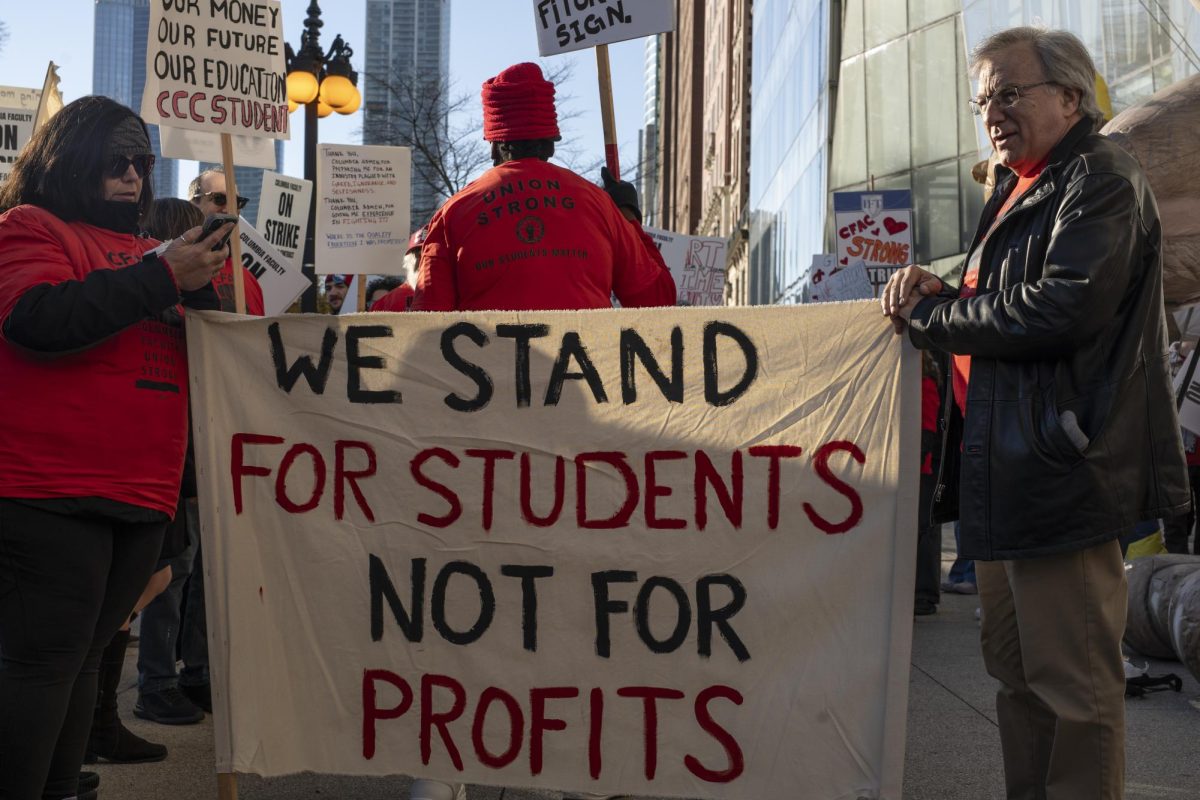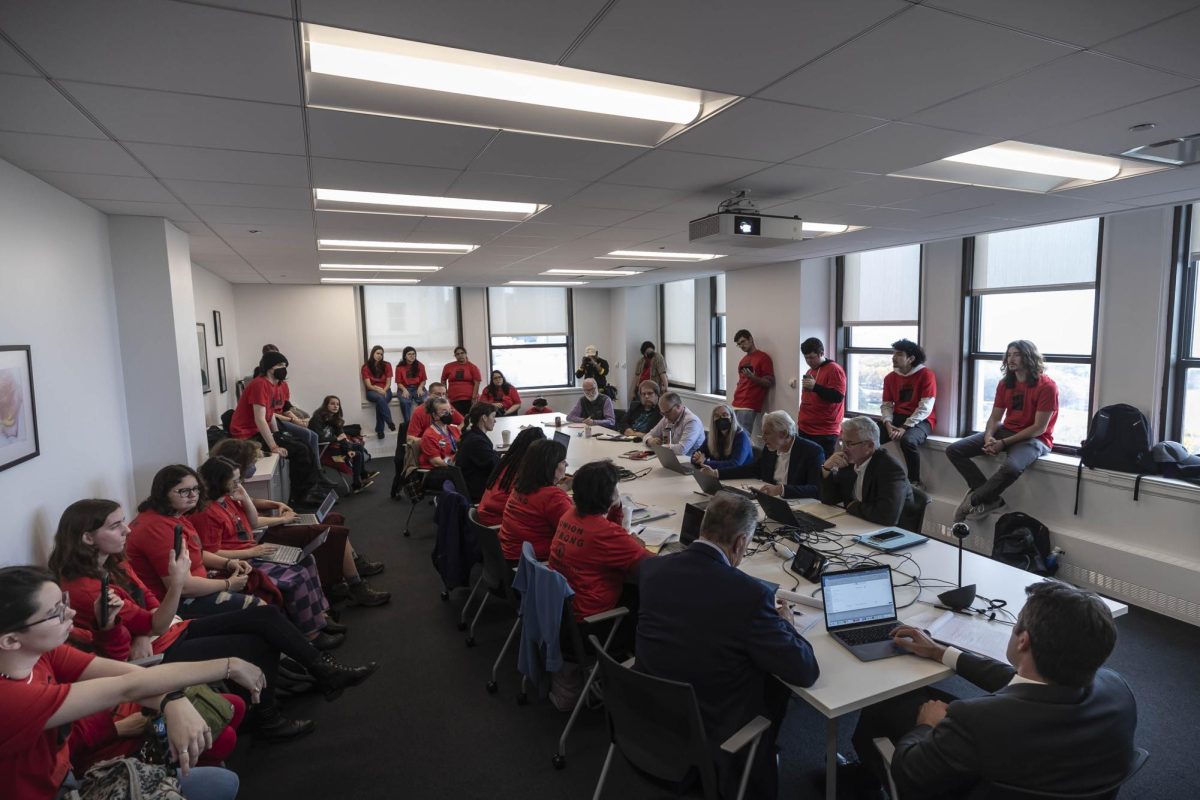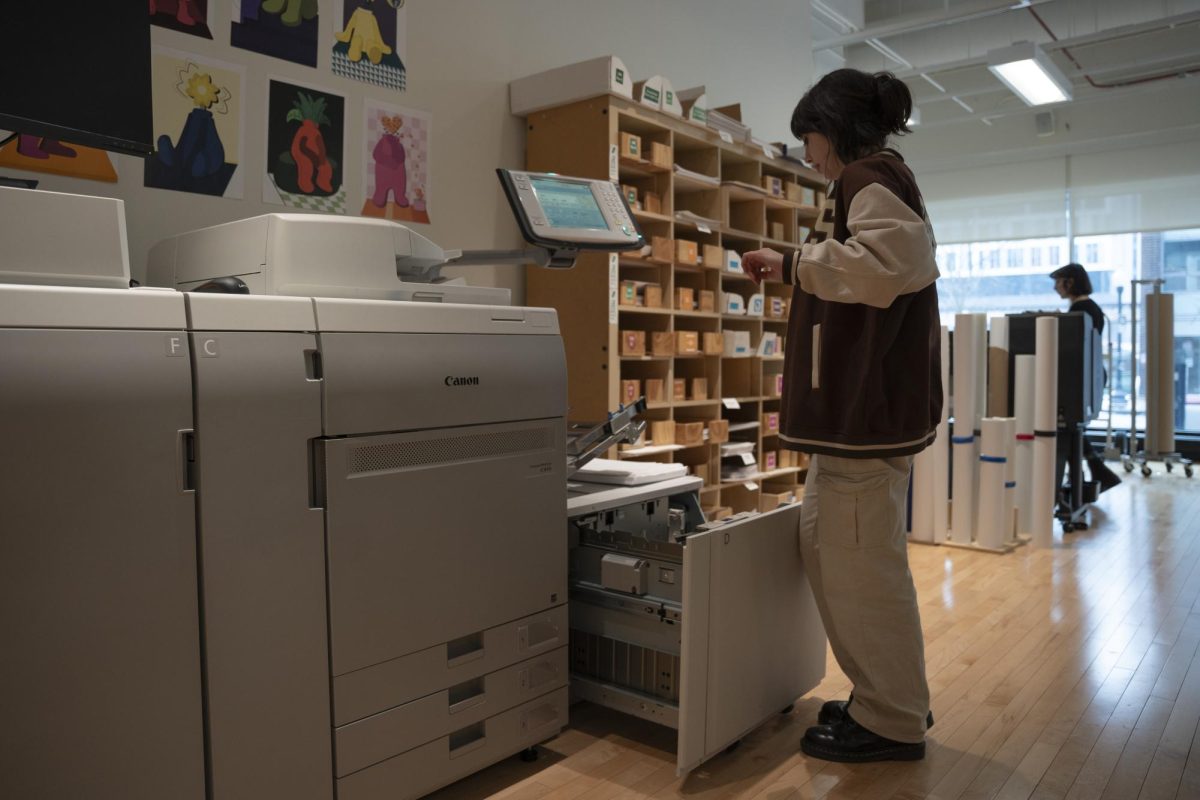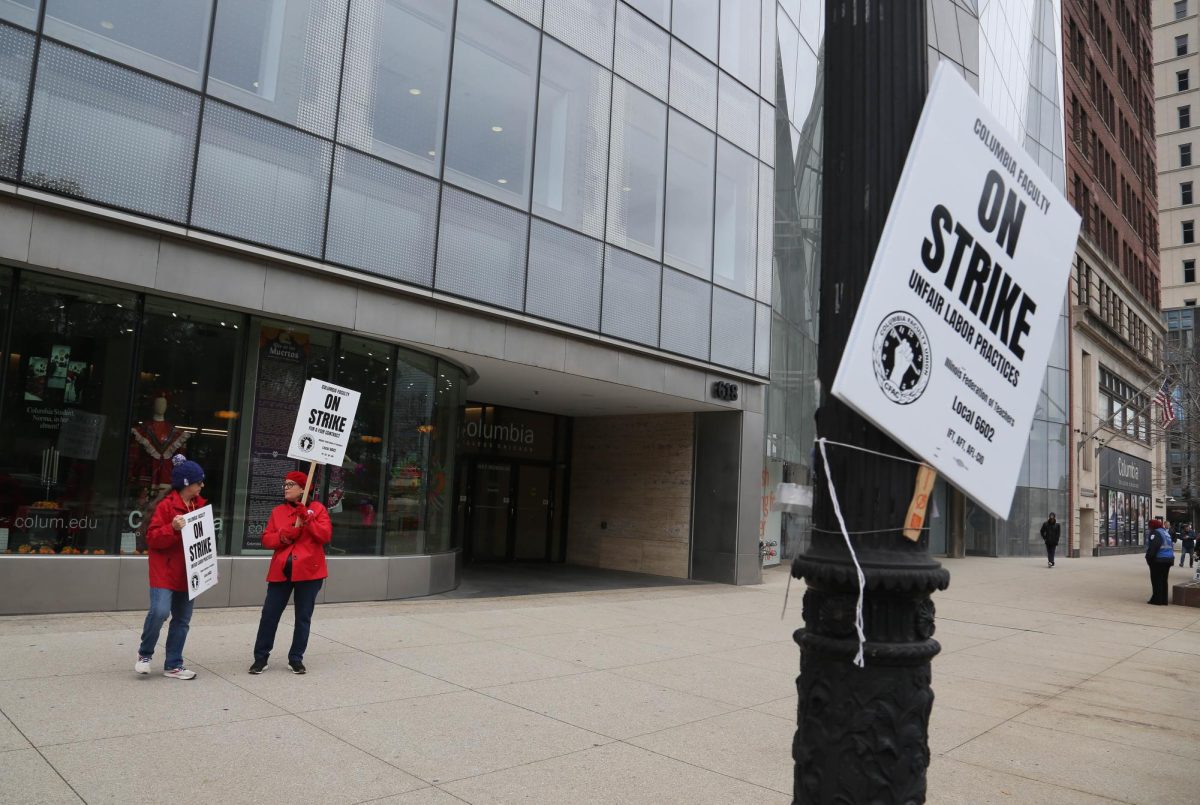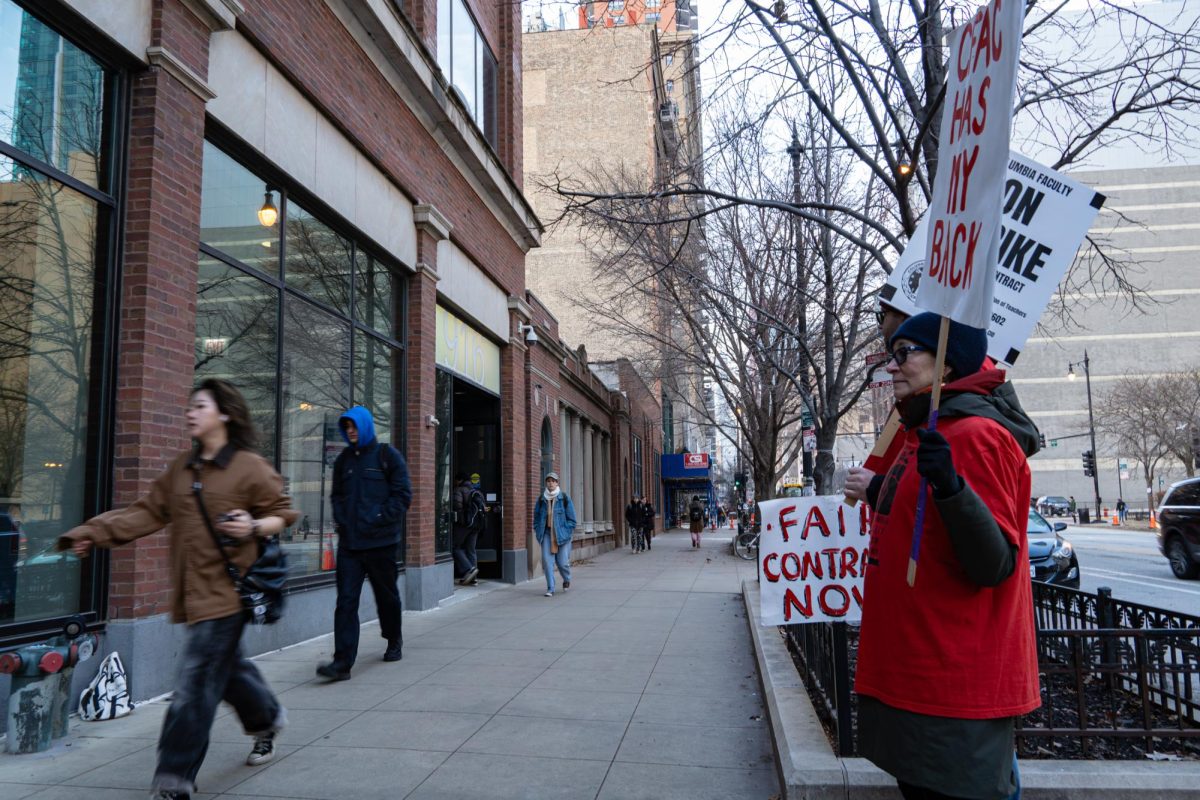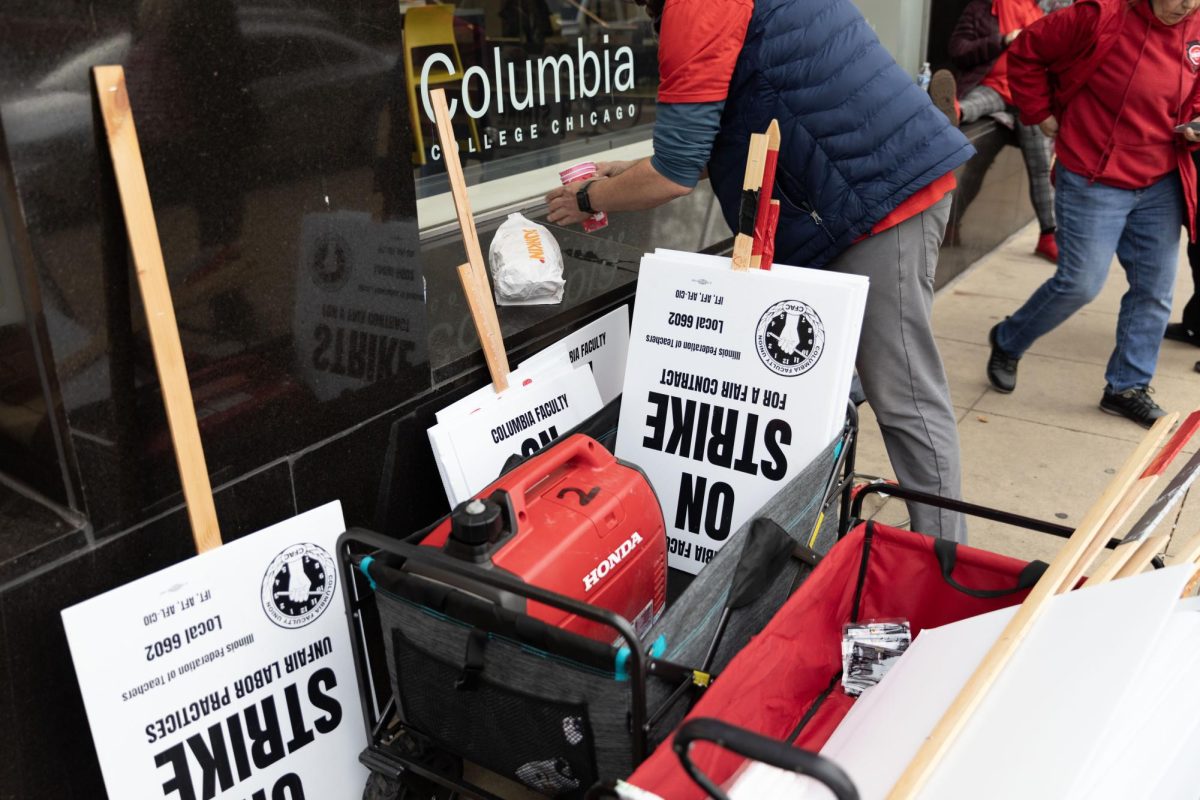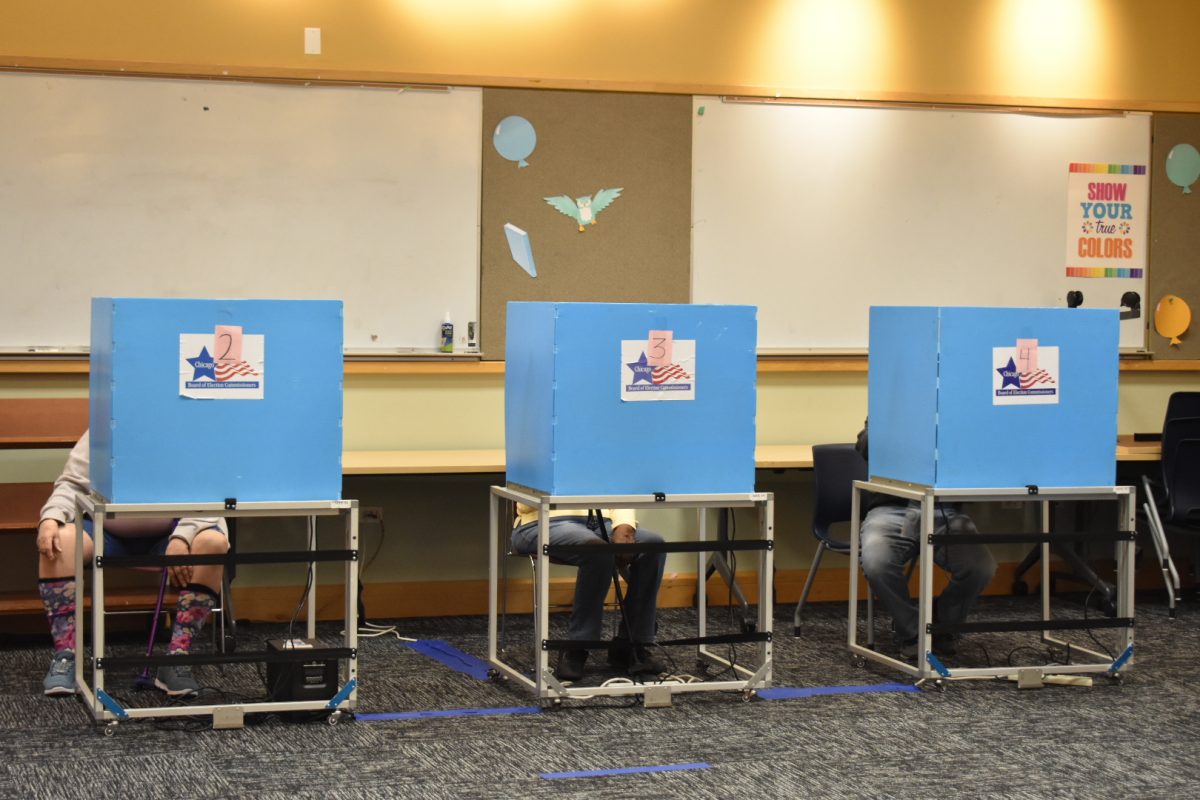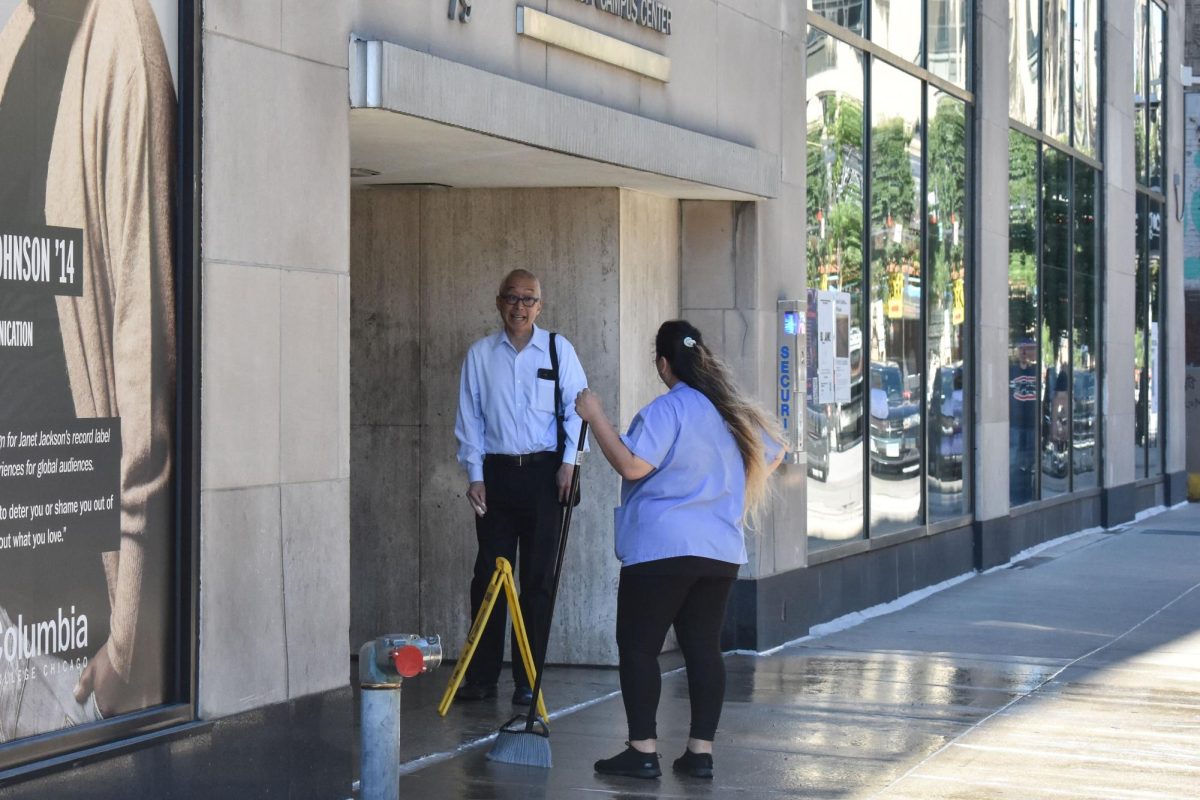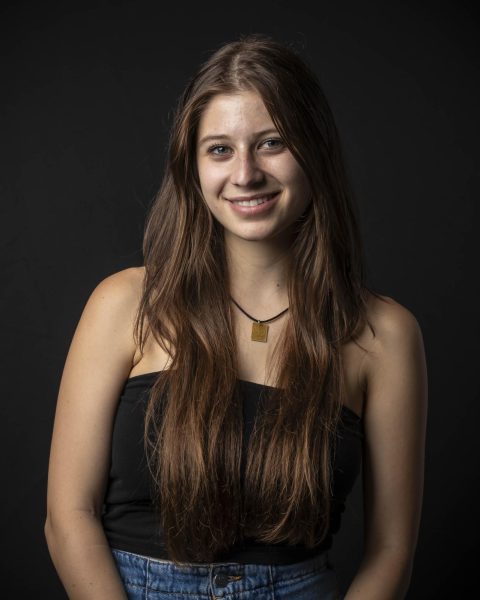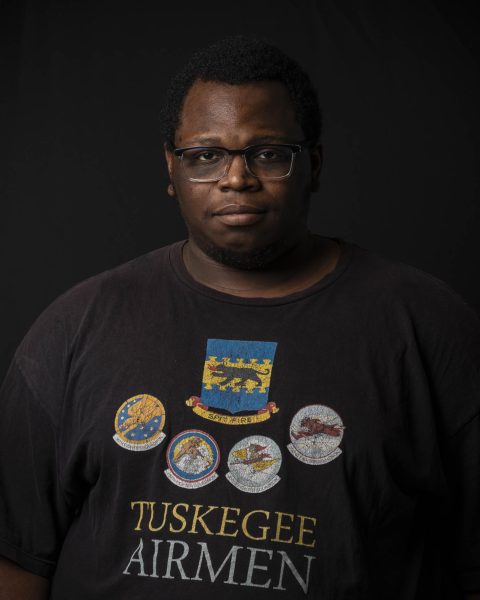Meg Cole, a senior fashion studies major, attended the part-time faculty union’s bargaining session on Thursday, Oct. 26 over concerns about a possible increase in class sizes.
“Tuition is also a concern,” Cole said, but as a disabled student, class sizes are at the forefront of her mind.
The Columbia College Faculty Union announced that they intend to strike starting on Monday, Oct. 30, and one of the reasons is a series of cost-cutting measures the college is putting in place to help offset a $20 million deficit.
The union wants to have a say in those plans, but the college has rejected that, saying it is targeting mostly foundational and survey courses to raise some course caps and eliminate some sections. When it does that, there will be fewer opportunities for part-time faculty to teach.
Cole is just one of hundreds of students who have voiced their concerns and frustrations on social media and in person at a union town hall and demonstration during Columbia’s Family Weekend.
At the invitation of the faculty union, students turned out again on Thursday ahead of a bargaining session that was livestreamed on Instagram from the CFAC account reportedly belonging to the union and an unspecified “CCC Student Body Coalition.”
“We agree on student success. I think we disagree that some of the things are going to harm student success,” Chief of Staff Laurent Pernot said during the bargaining session. “I believe that we can responsibly make some changes to the schedule, and of course offerings.”
What students are saying: Students, faculty and staff have lingering questions about what campus will look like next week, as part-time faculty hit the picket line — and with students and other campus employees potentially joining them.
Film and television major Jasmine Dunigan said that she feels “exhausted” with the “constant spewing of information that doesn’t seem to ease any of my worries coming from either parties.”
“I’m just worried about what this will mean for students of color once it’s all said and done,” Dunigan said. “It’s known that at educational institutions whenever there’s a problem, it trickles down to the students but it settles at and stains the students of colors.”
Despite being close to graduation, Yessica Perez, a senior in television producing and directing, is concerned about what to expect with this being her last semester on Columbia’s Chicago campus before she studies in Los Angeles during the spring.
“As a Latina student, the issues that our school is facing intimidate me because the school is already trying to expand class sizes,” Perez said. “I can be the only minority in the class as it is. I already feel intimidated now and with classes even bigger, it will affect me more. Columbia has been all about DEI but with them cutting classes, it doesn’t feel like it at all.”
In some cases, part-time faculty are preparing to teach on Zoom next week or in the classroom, according to emails and Canvas messages sent to students that were obtained by the Chronicle. Other part-time faculty will undoubtedly cancel class to honor the strike.
What the union is saying: After the bargaining session on Thursday, Union President Diana Vallera told students and part-time faculty who gathered outside the 600 S. Michigan building that any part-time or full-time faculty member who steps in to cover a class put on hold by a striking CFAC member during the strike is a “scab,” a derogatory term for someone who declines to join, or acts in a way that undermines, a labor action.
“Teaching through Zoom at home is crossing the picket line,” Vallera said. “No union member is going to cross the picket line. We make up around 67% of the teaching, we can shut down this institution and that’s what we’re going to do.”
The college has 221 full-time faculty and 584 part-time faculty teaching this fall, Pegeen Quinn, associate provost for academic personnel told the Chronicle.
The last time the union went on strike in 2017, not all part-time faculty participated in the strike.
What the college is saying: In an email to the campus community and on its website, the college has said it will not tolerate harassment of anyone who participates or declines to participate in the strike. “Strikers and their supporters should be allowed to express themselves without fear of harassment, violence, or retaliation,” it stated. “Similarly, anyone refraining from strike-related activities should also be free of harassment, violence, or retaliation.”
The college said in an email sent Thursday that students will not be penalized for attendance or progress in classes that are not being held due to the strike, but “as is normally the case, students will be marked absent if they miss a class that is being held.”
Additional strike guidance is available on the college’s website.
What instructors are saying: Part-time professors who have teaching seniority — because they have taught the most credit hours while at the college — are assigned classes first. Instructors with seniority can usually bump newer part-time faculty members from their classes.
“Like most part-time faculty, I don’t want to strike,” said Heather Cramond, part-time professor in the English & Creative Writing Department. “But if we don’t and we have a budget deficit, no one should be getting a bonus,” referencing union claims that administrators received hefty bonuses.
Crammond said she gets paid about $5,227.50 per class she teaches. She said the amount as a part-time professor is based on how many credit hours she has taught while at the college.
Senior Audio Arts major Fio Holloman said they have attended multiple events to show support for the union, including the protest at the president’s Family Weekend address and the bargaining session on Thursday.
“I will go to everything I can go to because I feel like all students should be doing that, honestly,” Holloman said. “If you’re going here, you’re paying for it, you should be fighting for your rights as a student.”
Holloman said the bargaining session did not feel like a negotiation because the college is not willing to meet the union’s demands regarding the college’s decisions to cut class sections and increase course enrollment caps.
“That was really discouraging, but it was good to be in the room to show that students are in support of the faculty,” Holloman said.
After the bargaining session, Vallera told student and employee demonstrators that the bargaining session “made it worse.”
“I hope something positive can come from it for part-time teachers,” said Grace Anders, a senior programming major. “But from what little I have heard, Columbia has been just barely staying afloat for a while. Often, we students bear the cost of that as tuition rises. Teachers deserve better, but I’d be curious to know if Columbia even has the means to meet demand.”
Additional reporting by Lily Thomas, Emily Ramirez, Lana Martinez, Vivian Richey, Sydney Richardson and Citlalli Sotelo


